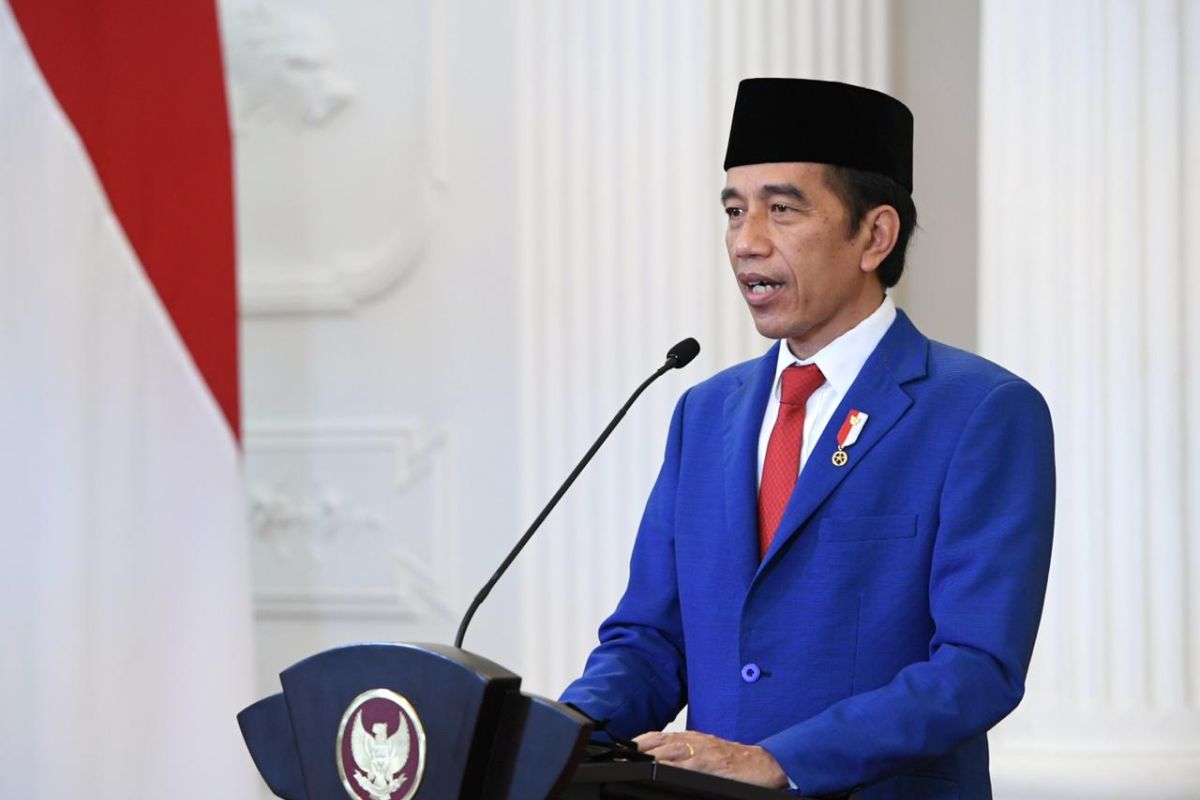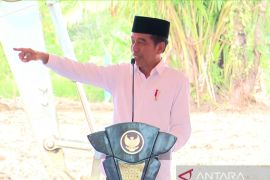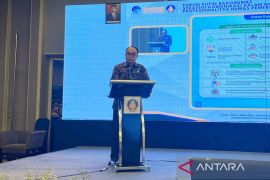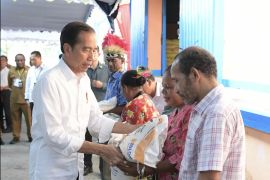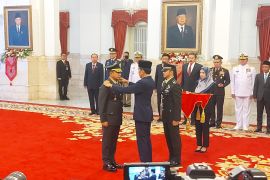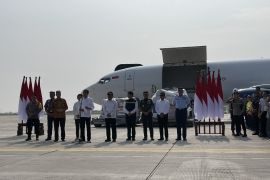All these programs are aimed at reducing the economic burden of our people owing to the COVID-19 pandemicJakarta (ANTARA) - President Joko Widodo (Jokowi) shed light on the government’s disbursal of social safety net cluster funds of Rp293 trillion to lower the financial burden of low-income households amid the ongoing novel coronavirus disease (COVID-19) pandemic.
Realization of this part of the National Economic Recovery (PEN) Program is expected to reduce the economic burden of low-income households, he told participants of the Indonesian Muslim Brotherhood's (Parmusi's) 4th congress here on Saturday.
Speaking at the event's opening session held via videoconference from Bogor, West Java Province, President Jokowi affirmed that the disbursement of social safety net cluster funds was expected to boost the people’s economic productivity in communities.
The funds were disbursed through programs, such as the Family Hope Program (PKH), Non-Cash Food Assistance Program (BPNT), Staple Food Aid Program (Sembako), Cash Social Transfer Program (Bansos), and Pre-employment Card Program (KPK).
The funds were also distributed to eligible recipients through the Direct Cash Assistance of the Village Funds (BLT Dana Desa), Presidential Assistance for Productive Micro, Small and Medium Enterprises, wage subsidy, and discount on electricity bill.
As of Sept 23, 2020, the government had disbursed Rp29.138 trillion to 10 million recipients of the PKH Program; Rp30.978 trillion to 19.41 million recipients of the Sembako Program; and Rp4.407 trillion to 1.9 million recipients of the Sembako Program in the Jabodetabek areas.
Moreover, the government had disbursed Rp24.787 trillion to 9.18 million recipients of the Non-Cash Social Assistance Program in the metropolitan areas of Jakarta, Bogor, Tangerang, and Bekasi (Jabodetabek); Rp16.617 trillion to 4.86 million recipients of the KPK Program; Rp11.73 trillion to 7.55 million recipients of the BLT Dana Desa Program; Rp14.183 trillion to 5.9 million recipients of the presidential assistance for SMEs; Rp10.8 trillion to nine million recipients of the Wage Subsidy Program; and Rp3.455 trillion to 31.4 recipients of the Discount on Electricity Bill Program, he said.
"All these programs are aimed at reducing the economic burden of our people owing to the COVID-19 pandemic," President Jokowi added.
In early September, Vice President Ma'ruf Amin unveiled that Indonesia's poverty rate would likely rise to 11.5 percent by 2020-end in the event of no significant flattening of the COVID-19 curve.
"Our poverty rate may return to that in 2011 if our efforts to mitigate the tremendous impacts of COVID-19 on public health and economic recovery do not run as expected," he stated during the national symposium on health, food security, and poverty issues.
Since the imposition of large-scale social restrictions to break the chain of COVID-19 outbreak in Indonesia, the number of poor people rose over 1.6 million, Amin noted at the symposium organized by the Makassar-based Hasanuddin University in early September.
In March, the country's poverty rate was recorded at 9.78 percent, or 26.42 million people. The figure was higher than 24.79 million people, or 9.22 percent, in September 2019, Vice President Amin stated.
In a bid to prevent the poverty rate from rising further and safeguarding the social welfare of community members bearing the major brunt of the COVID-19 pandemic, the government has been applying various social safety and mitigation programs.
In the wake of the pandemic, the Indonesian economy had contracted 5.32 percent in the second quarter of this year.
Related news: Prioritize efforts to thwart spread of COVID-19: Jokowi
Related news: Jokowi to inaugurate Pekanbaru-Dumai toll road on Friday virtually
EDITED BY INE
Translator: Indra AP, Rahmad Nasution
Editor: Fardah Assegaf
Copyright © ANTARA 2020
